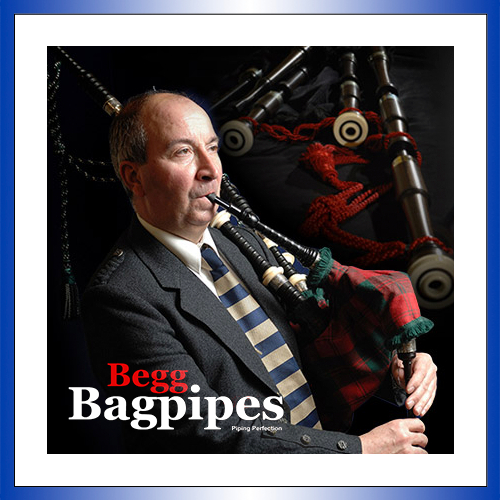
While clearing out my garage last month I stumbled across two boxes. Each was packed with VHS video cassettes – remember them? – of various films and comedies over the years. Mostly from the 1970s and 80s, of course. There were three piping tapes in the box: MacKinnon Productions’ West Highland Piper (Ronnie Lawrie), Hebridean Pipers (Willie Morrison and Roddy MacLeod) and the Vale of Atholl’s Ballymena concert from 1990.
Quite a few of the cassettes were my own recordings and with businesses now gradually re-opening, I took a few of them to a company that specialises in converting old VHS tapes into digital. Last weekend, I binge-watched some of them for the first time in 30 years. Man, people looked better in those days! Rare was the tattoo, and you never saw fishing tackle hanging from someone’s nose.
Or ear.
I digress.
Yes, already.
First, I watched the piping recordings – what a player Willie Morrison was! – then I watched most of the Twilight Zone episodes. Back then, I used to be obsessed with this series and all things Americana. The repeats of the original series from the early 1960s and the later series made in 1985 were favourites of mine right into adulthood. These days, the only ‘zone’ I try to be in is the heightened mental state that we all should be in when marching up to the line. (Some say I fail at that and should return to Rod Sterling’s stories but what do they know, the bams?).
Then there were some films that I had completely forgotten I’d taped, among them The Manchurian Candidate (1962), Jaws (1977), Marathon Man (1976) and Duel (1971). I must have recorded these from television broadcasts in either the late 1970s or early 80s and the discovery stirred many memories of the period for me. I couldn’t wait to revisit them.

These four movies are filled with suspense but two of them in particular, Marathon Man and Duel, are essentially movies about paranoia. “Is it safe?” a pliers-wielding Laurence Olivier (a wanted Nazi war criminal) menacingly asks Dustin Hoffman who is tied to a dentist chair. If you’ve never seen it, you should, although your next visit to the dentist will never be the same. It’s still an excellent film (Olivier won an Oscar for his part). However, Duel made a bigger impact on me.
Both these movies were, as indicated, made in the 1970s, an era that had a preponderance of pop groups that to a youngster in short trousers sounded like an estate agency (realtor) or a building society: Emerson, Lake and Palmer, Barclay James Harvest, Jon and Vangelis … exposure to anything American was limited to television series like Kojak and Starsky & Hutch.
You may have gathered by now that this blog is not really about piping …
Duel stars Dennis Weaver who plays a travelling salesman. We see him driving along a country road behind an ancient, erratic, smoke-belching truck. He sneaks past it. Then the truck overtakes him. This cat-and-mouse pursuit is essentially the story of the whole film. But it is, of course, an allegory and one that some believed later summed up the entire neurotic decade for a lot of Americans. Tom Wolfe called America’s 1970s the Me Decade but with hindsight, with all the paranoia of that period – and into the early 1980s – maybe it was really the Them Decade. (The 1980s was certainly the Me Decade, in both America and in Great Britain).
Before he made his name with Jaws (1977), Steven Spielberg directed Duel. The film distils the unequal struggle against Them into a parable of justified paranoia. There are no sub-plots in the film nor are there any other characters of any significance … it’s just Weaver and his invisible, inescapable predator. “You never know, you just never know,” he muses while splashing water on his face in the bathroom of a roadside cafè. “You just go along thinking some things never change, like being able to drive on a pubic highway without someone trying to murder you.” Meanwhile, the truck sits outside. The would-be assassin must be inside. One of the good old boys in cowboy boots sitting at the bar? Weaver casts his eye around. “OK, he’s crazy. What do I do about it?”
Like many others throughout the 1970s, he knows that calling the police would be a waste of time and of a dime. As always, in paranoid thrillers – and in their real-life enactments – no one would believe him. “I’ve got no proof and I’m sure none of these people would back me up,” he says. However, he does tell an old man at the bar: “That truck driver tried to kill me.” “Kill you?” the old man laughs. “Go on!”
The pursuit continues, with an impotent individual stalked by a monstrous machine that growls like a lion and snorts like a bull. This inanimate object has become a roaring and hungry beast … but whose hands are at the steering wheel? We never find out. I may not be selling it well to you, but believe me, it’s rivetting.
Back then, with mistrust of governments at an all-time high and paranoia caused by new infectious diseases•, pessimism was a natural way for the culture industry to connect with a public coping in a quagmire: prophecies of ecological doom, over-population, food shortages, rising prices, corruption in high places, pandemics … as the credits rolled I felt a sense of déja vu.
Perhaps that era has never really gone away.
- From 1961-1975 there was a worldwide cholera pandemic;
- In 1976 there were fears that an outbreak of a new flu virus in New Jersey would lead to a flu pandemic;
- In 1977, an influenza virus in northern China spread rapidly around the world;
- The first case of AIDS was recorded in the USA in 1981.
… we got through them all.


